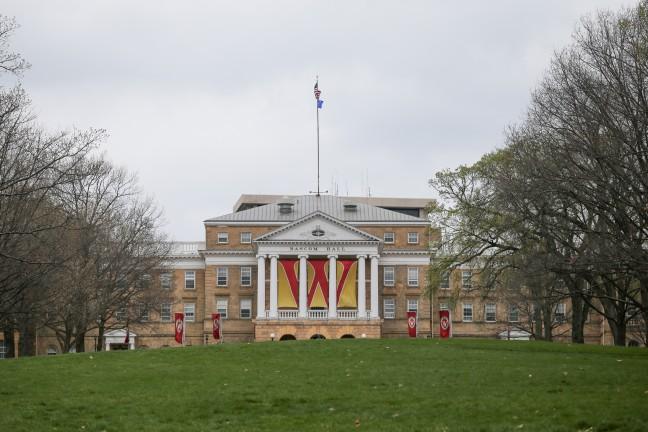
Members of the University of Wisconsin student government voted to support a measure calling four alleged violations by the Multicultural Student Coalition intentional.
The Student Services Finance Committee also approved a 52-week freeze on the organization’s budget.
Chair Sarah Neibart froze the organization’s budget after learning from UW administrators of the four violations of the same Wisconsin and UW purchasing policy, as well as a student government law.
The policy states groups must abide by university and state policies, are responsible for submitting contracts three weeks prior to purchasing a program, must submit a budget alteration for SSFC and understand budgets may require documentation, Neibart said during the meeting.
She added MCSC violated each of these rules in the process of asking for a budget alteration for training from Michael Franklin, an MCSC adviser who provides training to the organization.
When MCSC was denied the budget alteration in October, it went forward with the training, Neibart said. They also held a training session in December without filing the proper paperwork, then went directly to Vice Chancellor for Administration Darrell Bazzell for funding, rather than SSFC.
According to Neibart, the contracts covering the costs for Franklin total about $13,000 throughout the past year and a half. She added they are currently unsure whether the contracts will ultimately be funded because they are still being processed and UW may still be held liable for them.
The decision to rule the violations intentional puts more pressure on the ongoing debate on MCSC’s funding eligibility by the Associated Students of Madison, since part of the requirements to meet eligibility include being in accordance with the law, Neibart said.
Following open forum, during which MCSC members were not present because of a meeting conflict, multiple SSFC members said they did not see any way the moves were not intentional.
“This is intentional as far as I can tell,” SSFC Vice Chair Chase Wilson said. “It’s incredibly mind-boggling that anyone would even try to have contracts approved for services that happened six months ago with money that was not there without going through any of the normal processes at all.”
SSFC Rep. David Vines, who said earlier he was concerned about voting on the motion ruling the violations intentional without first hearing from MCSC representatives, asked members multiple questions about their steps in meeting with ASM professional staff to approve the contracts.
MCSC member Cecilia Le?n, who arrived at the SSFC meeting more than an hour into session, said after the committee’s unilateral decision not to recognize the contracts, MCSC had no other option but to turn to Bazzell for funding.
MCSC member Swati Bhargava also said they were not aware of a specific policy they were in violation of, adding there was a lack of training and communication between the two groups. They were also asked why they went to Bazzell, rather than finance specialists at ASM.
“I don’t think it came up because we weren’t even conscious it would be a policy violation,” Bhargava said. “It wasn’t until we heard back … that a flag came up and that’s when the vice chancellor raised the question. … But we weren’t asking the question because as far as we knew there wasn’t any.”












